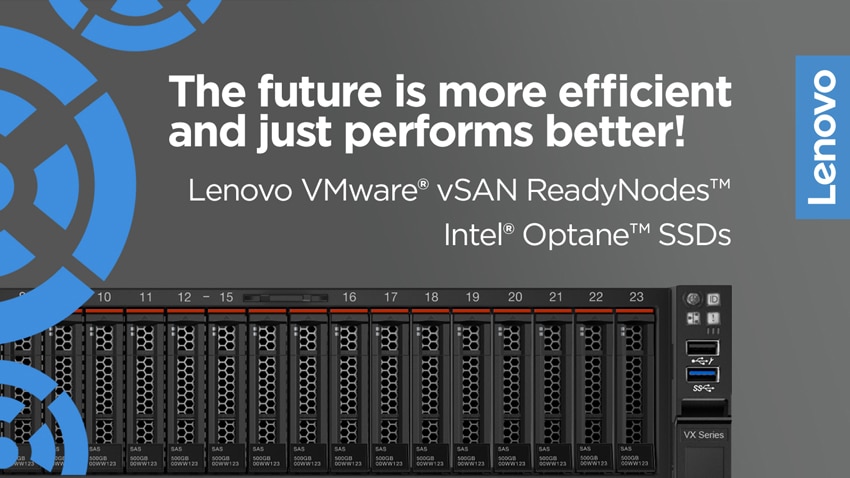 Lenovo today announced the release of vSAN ReadyNode with VMware and Intel to release a new vSAN ReadyNode based off of its ThinkSystem servers and Intel Optane technology. This new solution has been released to address the limitations that are met for virtualized applications. As storage has become the bottleneck in these instances, the companies have switched to a faster storage.
Lenovo today announced the release of vSAN ReadyNode with VMware and Intel to release a new vSAN ReadyNode based off of its ThinkSystem servers and Intel Optane technology. This new solution has been released to address the limitations that are met for virtualized applications. As storage has become the bottleneck in these instances, the companies have switched to a faster storage.
Lenovo today announced the release of vSAN ReadyNode with VMware and Intel to release a new vSAN ReadyNode based off of its ThinkSystem servers and Intel Optane technology. This new solution has been released to address the limitations that are met for virtualized applications. As storage has become the bottleneck in these instances, the companies have switched to a faster storage.

As things become more efficient they are consumed more often. While servers have been used in the data center since the onset, when they increased in performance this led to new applications such as virtualized infrastructures. These, along with several other new technologies, have demanded even more performance that while can be delivered by CPUs and memory, SAS and SATA storage fell behind. Overall this results in a sub-optimal scenario.
To address these and other issues, Lenovo, VMware, and Intel have created a new vSAN ReadyNode that leverages Optane storage. This address ease-of-use, skill set, and scaling issues that users run into with traditional storage. Optane storage will be used in Lenovo ThinkSystem SR630 and SR650 servers that themselves will be used as VMware vSAN ReadyNodes. The Optane technology will help bridge the storage performance issue with what the companies are calling high performance and a non-volatile memory technology that can provide data at almost the speed of DRAM.
Benefits include:
- 4x the performance and throughput over previous SSD technologies and 10x lower access latency
- To converge diverse workloads on the same hyperconverged infrastructure without impacting performance
- Realize a more than a 50% increase in VM density
- Concurrently run high transactional mission critical workloads that require fast storage
- Get 37% better price performance
Sign up for the StorageReview newsletter
